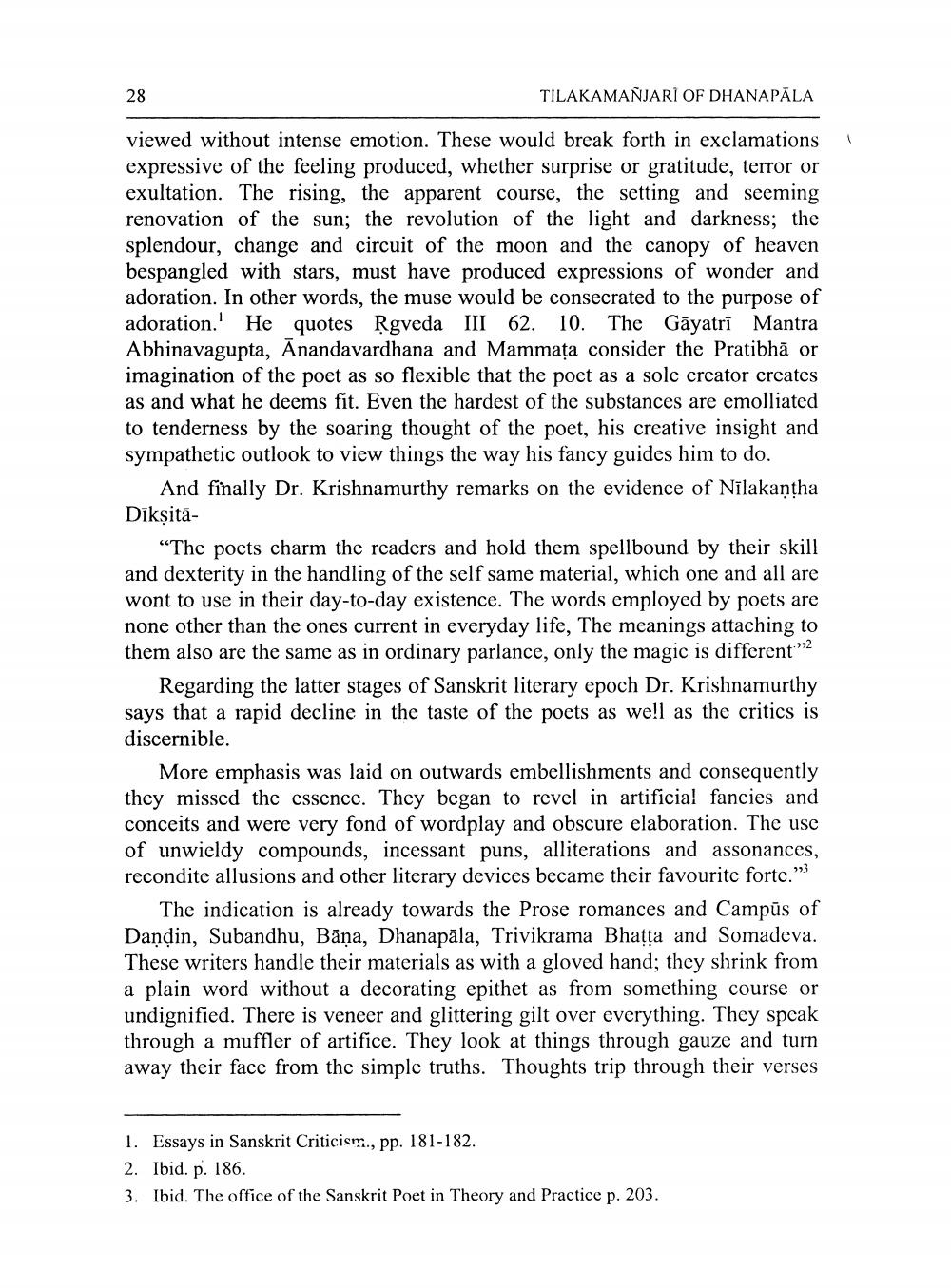________________
28
TILAKAMANJARI OF DHANAPĀLA
viewed without intense emotion. These would break forth in exclamations expressive of the feeling produced, whether surprise or gratitude, terror or exultation. The rising, the apparent course, the setting and seeming renovation of the sun; the revolution of the light and darkness; the splendour, change and circuit of the moon and the canopy of heaven bespangled with stars, must have produced expressions of wonder and adoration. In other words, the muse would be consecrated to the purpose of adoration. He quotes Rgveda III 62. 10. The Gāyatri Mantra Abhinavagupta, Anandavardhana and Mammața consider the Pratibhā or imagination of the poet as so flexible that the poet as a sole creator creates as and what he deems fit. Even the hardest of the substances are emolliated to tenderness by the soaring thought of the poet, his creative insight and sympathetic outlook to view things the way his fancy guides him to do.
And finally Dr. Krishnamurthy remarks on the evidence of Nilakantha Dīkṣitā
“The poets charm the readers and hold them spellbound by their skill and dexterity in the handling of the self same material, which one and all are wont to use in their day-to-day existence. The words employed by poets are none other than the ones current in everyday life, The meanings attaching to them also are the same as in ordinary parlance, only the magic is different:"2
Regarding the latter stages of Sanskrit literary epoch Dr. Krishnamurthy says that a rapid decline in the taste of the poets as well as the critics is discernible.
More emphasis was laid on outwards embellishments and consequently they missed the essence. They began to revel in artificial fancies and conceits and were very fond of wordplay and obscure elaboration. The use of unwieldy compounds, incessant puns, alliterations and assonances, recondite allusions and other literary devices became their favourite forte.":
The indication is already towards the Prose romances and Campūs of Dandin, Subandhu, Bāņa, Dhanapāla, Trivikrama Bhatta and Somadeva. These writers handle their materials as with a gloved hand; they shrink from a plain word without a decorating epithet as from something course or undignified. There is veneer and glittering gilt over everything. They speak through a muffler of artifice. They look at things through gauze and turn away their face from the simple truths. Thoughts trip through their verses
1. Essays in Sanskrit Criticism., pp. 181-182. 2. Ibid. p. 186. 3. Ibid. The office of the Sanskrit Poet in Theory and Practice p. 203.




